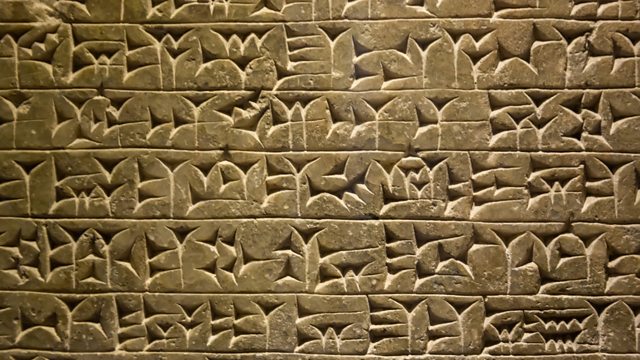Cuneiform
Cuneiform, the earliest known script, wasn’t used for poetry, or to send messages to far-off lands. It was used to create the world’s first accounts and written contracts.
The Egyptians thought literacy was divine; a benefaction which came from the baboon-faced god Thoth. In fact the earliest known script – “cuneiform” – came from Uruk, a Mesopotamian settlement on the banks of the Euphrates in what is now Iraq. What did it say? As Tim Harford describes, cuneiform wasn’t being used for poetry, or to send messages to far-off lands. It was used to create the world’s first accounts. And the world’s first written contracts, too.
Producer: Ben Crighton
Editors: Richard Knight and Richard Vadon
(Image: Close-up of clay tablet, Credit: Kotomiti Okuma/Shutterstock)
Last on
Sources and related links
Felix Martin - Money: The Unauthorised Biography London: Bodley Head (2013) pp39-42
William N. Goetzmann - Money Changes Everything: How Finance Made Civilization Possible Woodstock: Princeton University Press (2016) pp19-30
Jane Gleeson-White - Double Entry: How the Merchants of Venice Created Modern Finance (London: Allen & Unwin) 2012 pp11-12
Broadcasts
- Sat 29 Apr 2017 02:50GMTBBC World Service except Online, Australasia, News Internet & UK DAB/Freeview
- Sat 29 Apr 2017 19:50GMTBBC World Service except East and Southern Africa, News Internet & West and Central Africa
- Mon 1 May 2017 03:50GMTBBC World Service Online & UK DAB/Freeview only
Podcast
-
![]()
50 Things That Made the Modern Economy
The stories of inventions, ideas and innovations which helped create the economic world


